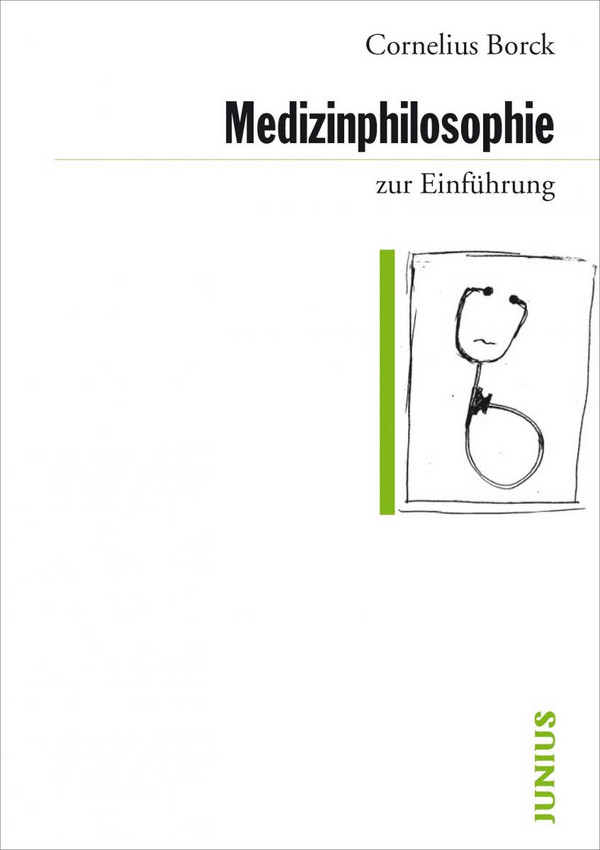Health and illness are central dimensions of human life. Accordingly one finds numerous conceptions about diseases, their courses and consequences in human culture. This central position of the question of health and illness however should not obscure the fact that biomedicine has gained its overriding supremacy in dealing with health only very recently. Even late in the 19th century, only small parts of the population in western countries had access to scientifically trained physicians, and only in the second half of the 20th century biomedicine advanced to the status of central authority about health issues on a global scale, dominating today practically all questions concerning human life as a biological phenomenon.
Within philosophy however the themes of health and disease have not been established as independent fields or philosophical subspecialties. And in todays biomedicine an attitude of skepticism prevails as soon as philosophical reflection transgresses ethical considerations. Yet, with its current state and practice medicine calls for philosophical reflection because it has never been as comprehensive and powerful as it is today. Medicine intervenes in individual experiences as well as in the cultural aperception of sickness and with its orientation towards technological innovation it is challenging traditional anthropological concepts.
Biomedicines transformative powers call for a historical approach, grounding philosophical reflection in a historical epistemology of its current knowledge, procedures, practices and legitimation strategies. In this perspective, the emergence and implementation of evidence-based medicine (EBM) as global standard of its practice appears as a recent epistemic shift in medicine, although it is today typically perceived as the only conceivable form of its practice.
The ongoing developments towards precision medicine can be described, in light of historical epistemology, as an attempt to redefine the framework of causal pathophysiology in terms of multi-omics.
See also:
Publications:
Borck C (2021) Wirksame Medizin – Eine Historische Epistemologie der evidenzbasierten Medizin als Ausgangsort für Medizinphilosophie. In: Orsolya Friedrich & Claudia Bozzaro (Hg.): Philosophie der Medizin. Paderborn: Brill mentis, S. 87-108.
Borck C (2020) Negotiating Epistemic Hierarchies in Biomedicine: The Rise of Evidence-Based Medicine. In: Moritz Epple, Annette Imhausen, Falk Müller (Hg.): Weak Knowledge: Forms, Functions, and Dynamics, Frankfurt: Campus Verlag, S. 449-482.
Borck C, Busch H (2018) Personalisierte Medizin – unsere Gesundheit im Umbruch. GuP Gesundheit und Pflege, Rechtszeitschrift für das gesamte Gesundheitswesen 8(5): 165-169.
Borck C (2018) Schiffbruch auf dem Datenozean medizinischer Information: Die Präzisionsmedizin der Zukunft, die Effizienz der modernen Medizin und das vergessene Können Heilkundiger. In: Daniela Ringkamp, Héctor Wittwer (Hg.): Was ist Medizin? Der Begriff der Medizin und seine ethischen Implikationen, Freiburg: Alber, S. 57-78.
Borck C (2016) Medizinphilosophie zur Einführung. 2. überarbeitete und um ein Nachwort ergänzte Aufl. 2021. Hamburg: Junius
Borck C (2016) Transformation der Medizin zur Biomedizin. In: Schaede, Stephan/ Rainer Anselm/ Kristian Köchy (Hg.): Das Leben: Historisch-systematische Studien zur Geschichte eines Begriffs, Bd. III, Tübingen: Mohr Siebeck, S. 235-239.
Borck C (2012) Welche Debatte um Priorisierung in der medizinischen Versorgung brauchen wir? What kind of debate on prioritisation do we need for the benefit of our health system and society?. ZEFQ - Zeitschrift für Evidenz, Fortbildung und Qualität im Gesundheitswesen 106(6): 383-385.
Borck C (2012) Das Paradox der Vertrauenskrise. Eine kleine Epistemologie von Wissen und Können in der Medizin, Nach Feierabend: Zürcher Jahrbuch für Wissensgeschichte 8: 65-84.
Borck C (2010) Interpreting Medicine: Forms of Knowledge and Ways of Doing in Clinical Practice. In: Peter K. Machamer and Gereon Wolters (Eds.): Interpretation: Ways of Thinking About the Sciences and the Arts (Eigth Pittsburg Constanz Colliqium on Philosophy of Science), Pittsburgh: University of Pittsburgh Press, pp. 179-202.
